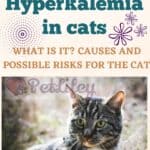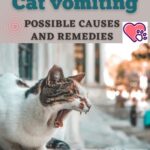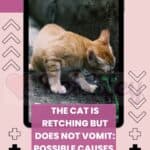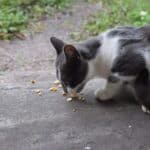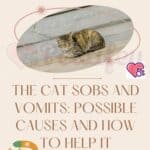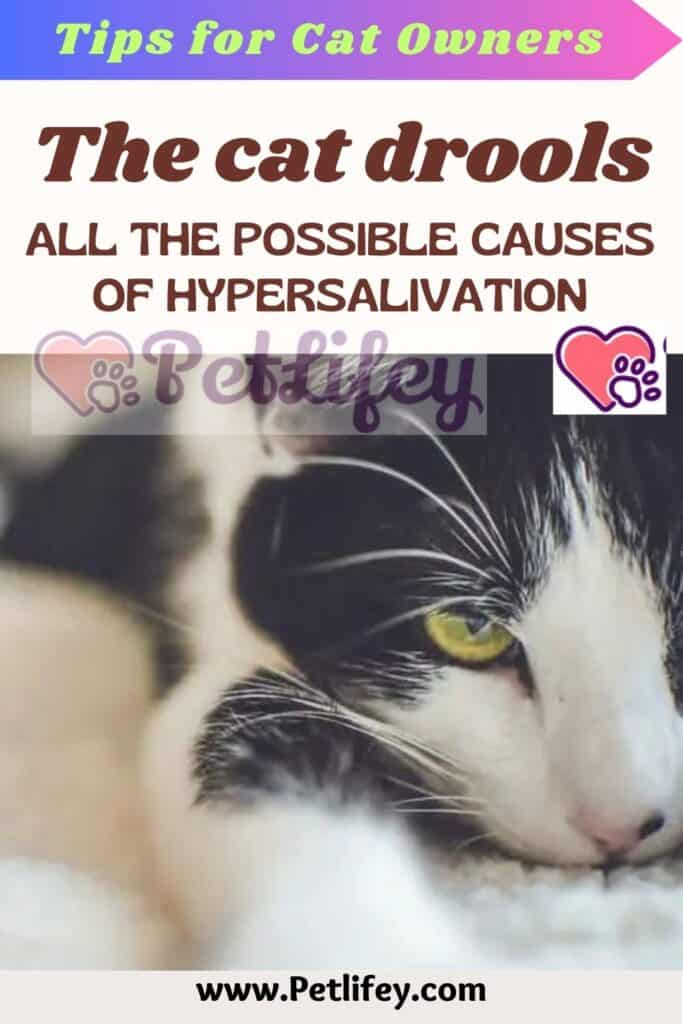
When my cat drools, what are the circumstances that cause this problem? Here are the useful remedies to help our cat.
Cats generally do not drool, but they can lose saliva in some circumstances. The problem is under control until it comes to a slight hypersalivation: if this increases it is necessary to call the vet because it is possible that there is a health problem. Here are the diseases that have hypersalivation among the main symptoms and how to help our cat not to lose saliva from the mouth.
The cat drools: is this normal?
If your cat suffers from hypersalivation, don’t make a fuss of it, at least as long as the amount of saliva is not so excessive that it is worrying. When they are particularly excited or very stressed, cats can drool: a master who knows his cat perfectly naturally also knows if he is used to drooling or not. It is important to note the related symptoms: in fact, if the hypersalivation is accompanied by some unusual habits (such as lack of appetite for example) it is advisable to alert the expert. So while it is normal for dogs to drool, our cats only do so under certain circumstances.
The cat drools: when is it necessary to go to the vet?
If your cat is different than usual and behaves in a completely unusual way, because maybe he is always tired, wants to sleep and does not want to eat or play, maybe there is something wrong. In this case, contacting your trusted veterinarian is the best solution. The expert will in fact proceed with an oral exam to check for infections or any lesions inside the mouth. He will then move on to the general body examination, perhaps using contrast X-ray or endoscopy to visualize an intestinal blockage.
The cat drools: the causes
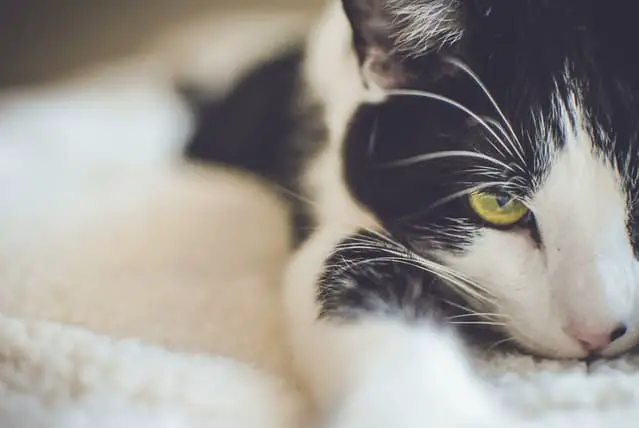
If there is a pathology at the base of this problem then it is good to understand what the causes may be. Of course, providing the vet with as many elements as possible to reconstruct the cat’s last days before the visit will help him identify a possible feline health problem. So here are the diseases that can affect the well-being of our four-legged friend and cause him, among the symptoms, also hypersalivation.
Causes of hypersalivation: dental problems
FORL (dental disease caused by odonto-clastic resorption) causes pain in the gums and teeth, causing excessive salivation. One of the signs is a typical red stripe on the cat’s gum: beware of tartar that can hide this lesion. If he has pain in his teeth, the cat will be less stimulated to eat, hence loss of appetite, and will have bad breath. Constant lack of appetite easily causes weight loss.
Causes of hypersalivation: renal and hepatic insufficiency
Kidney failure is a fairly common problem in cats and can develop both chronic and acute. The first in fact involves weight loss, dehydration and increased thirst, urination or uncontrolled leakage of urine, halitosis and hypersalivation. If the level of urea nitrogen and creatinine (which should be cleared by the kidney) build up in the blood, uremic ulcers occur in both the mouth, esophagus and stomach. Being a rather serious pathology, as well as liver pathologies, the vet must immediately take action.
Causes of hypersalivation: poisoning
When the cat ingests corrosive poisons, due to the ingestion of drugs or chemicals, the liver often does not metabolize them (process called glucuronidation). Some household cleaning detergents also contain these poisons, which are irritating to both dogs and cats, with a high corrosive effect. When the cat licks this substance, burns can develop in the mouth but also in the esophagus and stomach. These inflammation causes excessive salivation.
In this case the best thing to do is to try to rinse your mouth with fresh water and perhaps encourage him to ingest liquids such as broth or milk to clear the esophageal canal and dilute the corrosive substances. Then of course contact the vet.
Plant poisoning
A separate mention deserves the poisoning by plants, which contain insoluble calcium oxalate crystals: these cause an intense burning in the mouth. If the cat comes into contact with these plants and eats them, it can poison itself and cause intense salivation. Only in case of vomiting and loss of appetite is it necessary to contact the veterinarian.
Causes of hypersalivation: accidents and trauma
When the cat goes out of the house the dangers of the road are always lurking: cars, traffic, encounters with other dogs, etc., and trauma or accidents can occur that affect their health. If jaw damage occurs due to trauma, cats can suffer from salivation and drool due to the inability to close their mouths. An x-ray and a full vet exam can diagnose the problem and start fixing it.
Causes of hypersalivation: objects
Some foreign bodies, especially if pointed, can scratch the tongue, the palate and the throat: this causes acute pain and also abundant salivation since the cat will be unable to close its mouth. An x-ray and a total visit can identify the object and eventually remove it.
Causes of hypersalivation: tumor
White cat breeds are generally the most prone to malignant squamous cell tumors, due to a lack of pigmentation. This type of cancer can affect the eyes, mouth and ears, and hypersalivation is among its symptoms. If we notice other warning signs such as halitosis, loss of appetite, chewing problems, excessive weight loss and difficulty closing the mouth, it is good to consult your veterinarian immediately.
Causes of hypersalivation: heat stroke
Flat-nosed feline breeds such as the Persian can easily suffer from heat stroke. it can occur from prolonged sun exposure, dehydration and lack of shade. In summer or during the first spring sun let us always provide him with fresh water and a bed in the shade to avoid this danger.
Causes of hypersalivation: motion sickness
Cats do not like to travel and this event could stress them a lot. In addition to nervousness and nausea, cats may suffer from hypersalivation by breathing poorly. There are some tricks to travel peacefully with your cat, first of all the choice of the pet carrier and some precautions during the trip.
Causes of hypersalivation: upper respiratory tract infections
If the cat lives with other pets, it is more likely to develop colds and nose and throat infections. One of the symptoms, in addition to asthma and difficulty in breathing properly, is hypersalivation. We ask your vet for advice before proceeding with risky do-it-yourself methods.


